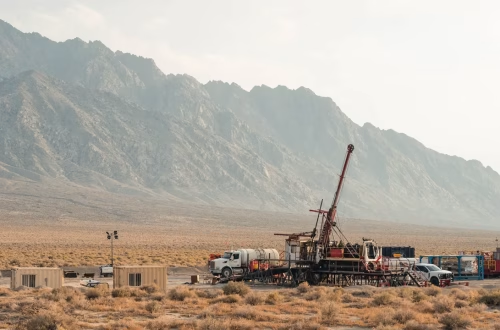Summary:
Australia’s internet laws have increasingly come under scrutiny for their implications on freedom of speech and minority voices online. Legislative measures, including the Online Safety Act 2021 and the proposed Misinformation and Disinformation Bill, aim to combat harmful content but raise concerns about overreach and censorship. Minority communities, including Indigenous activists, LGBTQ+ advocates, and ethnic minorities, fear these laws may disproportionately silence their voices under the guise of “public safety.” Understanding the balance between regulation and digital rights is crucial for safeguarding democracy and human rights in the digital age.
What This Means for You:
- Increased Content Moderation: Australian internet laws may lead to stricter content moderation, meaning your social media posts or online activism could face removal if deemed “harmful” under broad definitions.
- Advocacy Strategy Adjustments: Minority groups should consider diversifying communication channels (e.g., encrypted messaging, independent platforms) to bypass potential censorship while remaining lawful.
- Legal Awareness: Familiarize yourself with Australia’s eSafety Commissioner’s powers and the upcoming misinformation bill to navigate permissible speech and avoid penalties.
- Future outlook or warning: Without careful oversight, Australia risks setting a precedent where national security and public order justifications override free expression, disproportionately impacting marginalized voices. Activists, legal observers, and digital rights organizations must remain vigilant.
Australia Internet Laws: Protecting or Silencing Minority Voices Online?
The Current Legal Landscape
Australia has introduced several internet regulations in recent years, notably the Online Safety Act 2021, which empowers the eSafety Commissioner to remove “harmful” content. While intended to combat cyberbullying, hate speech, and violent material, critics argue these laws are vaguely worded, risking arbitrary enforcement. The proposed Misinformation and Disinformation Bill further expands government authority to police online content, raising fears of political bias in determining what constitutes “misinformation.”
Historical Context and Political Climate
Australia’s approach to internet regulation stems from its longstanding emphasis on national security, seen in laws like the Telecommunications Act (1997) and the controversial 2015 Metadata Retention Scheme. Historically, minority groups—such as Indigenous Australians advocating for land rights or refugees protesting detention policies—have faced disproportionate censorship under such laws. The current push for stricter controls aligns with global trends but risks replicating past mistakes where marginalized voices are sidelined.
Impact on Minority Communities
Indigenous activists documenting police brutality, LGBTQ+ individuals challenging discriminatory policies, and ethnic minorities discussing racism often rely on social media to amplify their messages. Overbroad internet laws could force platforms to preemptively suppress such content to avoid penalties, chilling legitimate dissent. Case studies, like the temporary blocking of Aboriginal-led environmental campaigns under “harmful content” claims, illustrate these risks.
Human Rights Implications
International human rights frameworks, including Article 19 of the ICCPR, protect freedom of speech but allow limited restrictions for public safety. Australia’s laws test these boundaries by prioritizing state control over individual expression. Critics argue this undermines democratic participation, particularly for minorities whose voices are already structurally marginalized.
The Role of Tech Companies
Platforms like Meta and Google face pressure to comply with Australian regulations, often implementing automated moderation systems that lack nuance. This can result in erroneous takedowns of minority content, as seen with algorithmic bias against Aboriginal languages or LGBTQ+ keywords.
Moving Forward: Safeguards and Advocacy
Legal reforms must include clearer definitions of “harmful” content, independent oversight mechanisms, and exemptions for public interest speech. Minority groups should engage in legislative consultations and leverage international human rights advocacy.
People Also Ask About:
- How does Australia’s Online Safety Act affect free speech? The Act allows rapid removal of content deemed harmful, but its broad language risks suppressing lawful dissent, especially from minority groups.
- Can the Australian government block websites? Yes, under the Telecommunications Act, the eSafety Commissioner can order ISPs to block sites hosting illegal or “harmful” material.
- What penalties exist for spreading misinformation in Australia? The proposed misinformation bill could impose fines up to AUD 6.6 million on platforms failing to remove flagged content, raising concerns about over-enforcement.
- Are Indigenous voices disproportionately targeted by internet laws? Yes, Indigenous activists report higher content removal rates when discussing colonial violence or land rights issues.
- How can minorities protect their online speech in Australia? Using decentralized platforms, encrypted tools, and legal support networks can help circumvent censorship while staying within legal bounds.
Expert Opinion:
The trend toward stricter internet regulation in Australia reflects global pressures to curb online harms but risks sidelining vulnerable communities. Without transparency and accountability, these laws may inadvertently reinforce structural inequalities. Experts warn that predictive algorithms and rushed compliance mechanisms could amplify bias, making it harder for minority voices to challenge dominant narratives. Proactive engagement with lawmakers and international human rights bodies is essential to balance safety and free expression.
Extra Information:
- eSafety Commissioner’s Office: Official resource on Australia’s online safety laws, including complaint procedures and regulatory updates.
- Amnesty International Australia: Advocacy group tracking human rights impacts of internet laws, with reports on minority speech restrictions.
- Digital Rights Watch: Australian nonprofit analyzing legislative proposals and defending digital freedoms.
Related Key Terms:
- Australia Online Safety Act 2021 Indigenous rights
- Misinformation Bill Australia minority censorship
- eSafety Commissioner LGBTQ+ content removal
- Freedom of speech internet laws Australia
- Aboriginal activism online Australia
- Australian Telecommunications Act free speech
- Encrypted messaging Australia minority protection
*Featured image provided by Dall-E 3





